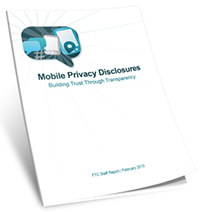Under an agreement with the Federal Trade Commission, the defendants in a scheme that allegedly bilked consumers out of more than $100 million by falsely claiming they could reduce their tax debts must surrender more than $15 million in cash and assets to settle charges that they violated federal law. Under the settlement order, American Tax Relief LLC and its leader, Alexander Seung Hahn, are banned from telemarketing, and they and Hahn’s wife, Joo Hyun Park, are permanently prohibited from selling debt relief services. As part of the FTC’s ongoing efforts to protect consumers in financial distress, this is the agency’s first action against a tax relief company.
The FTC filed charges against American Tax Relief, Hahn, and Park in September 2010. A court subsequently halted the allegedly illegal practices, froze the defendants’ assets, and appointed a receiver to manage the company pending resolution of the case.
In August 2012, the court entered partial summary judgment in favor of the FTC, finding that the defendants falsely claimed they already had significantly reduced the tax debts of thousands of people and falsely told individual consumers they qualified for tax relief programs that would significantly reduce their tax debts. The court found Hahn personally liable for the challenged practices.
The settlement order imposes a $103.3 million judgment against ATR, Hahn, and Joo Hyun Park. It also imposes judgments of $18 million and $595,000, respectively, against relief defendants Young Soon Park and Il Kon Park, Joo Park’s parents, who were not charged with participating in the scheme but were found by the court to have received significant sums. The judgments will be suspended once the defendants and relief defendants have surrendered assets that total more than $15 million, including cash, a home in Beverly Hills and a condo in Los Angeles, jewelry and gold items, and a 2005 Ferrari. The full judgments will become due immediately if the defendants or relief defendants are found to have misrepresented their financial condition.
The order also prohibits ATR, Hahn, and Park from misrepresenting material facts about any products or services, collecting payments from the scheme’s customers, selling or otherwise benefitting from customers’ personal information, and failing to properly dispose of customer information.
The Commission vote to approve the proposed stipulated final judgment was 5-0. The stipulated final judgment was entered by the U.S. District Court for the Central District of California on January 29, 2013.
Consumers having trouble meeting their tax obligations should read the FTC’s Tax Relief Companies.
NOTE: This stipulated final judgment is for settlement purposes only and does not constitute an admission by the defendants or relief defendants of the allegations in the complaint. Stipulated final judgments have the force of law when approved and signed by the District Court judge.
The Federal Trade Commission works for consumers to prevent fraudulent, deceptive, and unfair business practices and to provide information to help spot, stop, and avoid them. To file a complaint in English or Spanish, visit the FTC’s online Complaint Assistant or call 1-877-FTC-HELP (1-877-382-4357). The FTC enters complaints into Consumer Sentinel, a secure, online database available to more than 2,000 civil and criminal law enforcement agencies in the U.S. and abroad. The FTC’s website provides free information on a variety of consumer topics. Like the FTC on Facebook, follow us on Twitter, and subscribe to press releases for the latest FTC news and resources.

